Bizarre cleaning tips that work – sounds intriguing, right? I know, I know, you’re probably thinking, “Another cleaning article? Yawn!” But trust me, this isn’t your grandma’s guide to dusting. We’re diving deep into the weird and wonderful world of cleaning hacks that actually, surprisingly, work.
For centuries, humans have been obsessed with cleanliness. From ancient Roman bathhouses to the meticulous rituals of Japanese tea ceremonies, the pursuit of a spotless environment has been a constant. But let’s be honest, sometimes the traditional methods just don’t cut it. That’s where these bizarre cleaning tips that work come in.
Let’s face it, cleaning can be a drag. It’s time-consuming, often frustrating, and let’s not even talk about the cost of all those fancy cleaning products! But what if I told you that you could achieve sparkling results using items you probably already have lying around your house? Think beyond the bleach and embrace the unconventional. These DIY tricks and hacks are not only budget-friendly but also surprisingly effective. So, ditch the drudgery and get ready to discover some truly mind-blowing cleaning secrets. I promise, you’ll never look at your pantry the same way again!
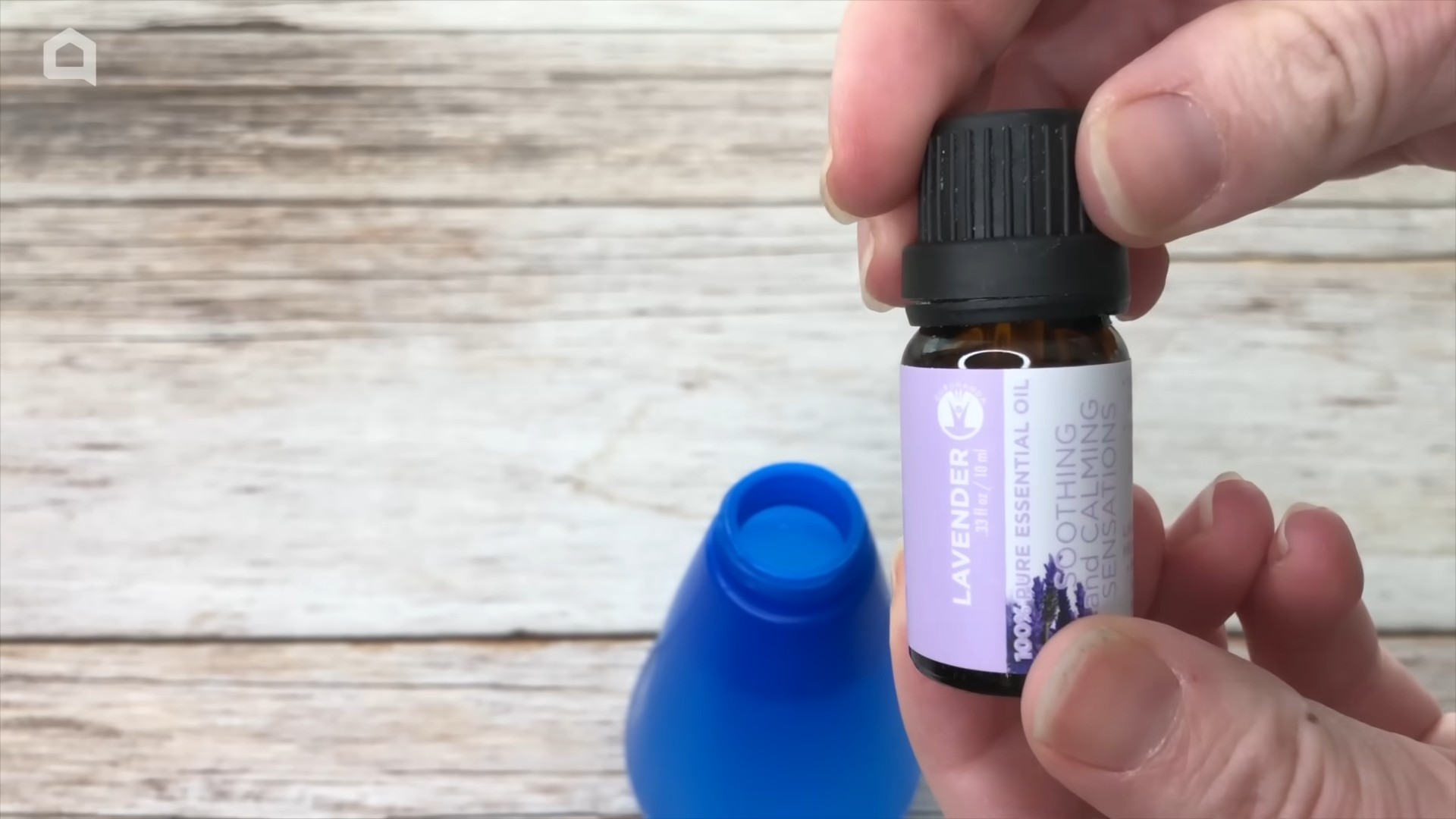
Bizarre Cleaning Tips That Actually Work (I Swear!)
Okay, let’s be honest, cleaning isn’t exactly anyone’s favorite pastime. But what if I told you there were some seriously weird, yet surprisingly effective, cleaning hacks out there? I’ve tried these myself, and I’m here to tell you, they actually work! Get ready to ditch the harsh chemicals and embrace the bizarre.
Cleaning with Coca-Cola: More Than Just a Drink!
You might think of Coca-Cola as a sugary treat, but it’s also a surprisingly powerful cleaning agent. The phosphoric acid in Coke makes it great for breaking down rust, stains, and even grime.
Cleaning a Toilet with Coke
Yes, you read that right. Coke can actually clean your toilet! Here’s how:
1. Pour it in: Pour an entire can of Coca-Cola around the rim of your toilet bowl, making sure to coat all the stained areas.
2. Let it sit: Let the Coke sit for at least an hour, or even overnight for really tough stains. This allows the phosphoric acid to work its magic and break down the grime.
3. Scrub and flush: After the soaking period, scrub the toilet bowl with a toilet brush as you normally would. You’ll be surprised at how easily the stains come off.
4. Flush: Flush the toilet to rinse away the Coke and the loosened grime. You should be left with a sparkling clean toilet bowl!
5. Repeat if necessary: For stubborn stains, you might need to repeat the process.
Removing Rust with Coke
Got rusty tools, bolts, or even a rusty bumper? Coke can help with that too!
1. Soak the item: Submerge the rusty item in a container filled with Coca-Cola. Make sure the entire rusty area is covered.
2. Wait patiently: Let the item soak for several hours, or even overnight for heavily rusted items. The longer it soaks, the better the results.
3. Scrub and rinse: After soaking, scrub the item with a wire brush or steel wool to remove the loosened rust.
4. Rinse thoroughly: Rinse the item thoroughly with water to remove any remaining Coke and rust particles.
5. Dry completely: Dry the item completely to prevent further rusting. You can use a towel or a heat gun for this.
Vinegar: The All-Purpose Cleaning Wonder
Vinegar is a staple in many kitchens, but it’s also a fantastic natural cleaner. Its acidity makes it effective at cutting through grease, removing hard water stains, and disinfecting surfaces.
Cleaning a Showerhead with Vinegar
Hard water deposits can clog your showerhead and reduce water pressure. Vinegar to the rescue!
1. Prepare the vinegar solution: Fill a plastic bag with white vinegar. You might need to dilute it with a little water if you have a delicate showerhead finish.
2. Attach the bag: Secure the bag around the showerhead with a rubber band or twist tie, ensuring that the showerhead is completely submerged in the vinegar.
3. Soak overnight: Let the showerhead soak in the vinegar overnight. This allows the vinegar to dissolve the mineral deposits.
4. Remove and rinse: Remove the bag and discard the vinegar. Rinse the showerhead thoroughly with water to remove any remaining vinegar and loosened deposits.
5. Wipe clean: Wipe the showerhead clean with a cloth. You should notice improved water pressure and a sparkling clean showerhead!
Deodorizing Your Washing Machine with Vinegar
Your washing machine can develop a musty odor over time. Vinegar can help eliminate that smell and keep your machine fresh.
1. Empty the washing machine: Make sure your washing machine is empty.
2. Add vinegar: Pour 2 cups of white vinegar into the detergent dispenser.
3. Run a hot cycle: Run a hot water cycle with no laundry in the machine.
4. Repeat monthly: Repeat this process once a month to keep your washing machine smelling fresh and clean.
Using Lemons for Cleaning and Freshening
Lemons are not just for lemonade! Their acidity and fresh scent make them excellent for cleaning and deodorizing.
Cleaning a Microwave with Lemons
Microwaves can get pretty gross with splattered food and lingering odors. Lemons can help clean and freshen your microwave with minimal effort.
1. Prepare the lemon solution: Cut a lemon in half and squeeze the juice into a microwave-safe bowl. Add the lemon halves to the bowl and fill it with about a cup of water.
2. Microwave the solution: Microwave the lemon solution on high for 3-5 minutes, or until the water boils and the microwave is filled with steam.
3. Let it sit: Leave the microwave door closed for another 5-10 minutes to allow the steam to loosen the grime.
4. Wipe clean: Carefully remove the bowl (it will be hot!) and wipe down the inside of the microwave with a cloth. The grime should come off easily.
5. Enjoy the fresh scent: Your microwave will be clean and smell lemony fresh!
Brightening Laundry with Lemons
Lemons can also help brighten white laundry and remove stains.
1. Soak stained items: For stained white items, soak them in a bowl of hot water with lemon juice added for at least an hour before washing.
2. Add lemon juice to the wash: Add 1/2 cup of lemon juice to your washing machine along with your regular detergent when washing white clothes.
3. Dry in the sun: Hang your white clothes to dry in the sun. The sun’s rays will help to further brighten the fabric.
Baking Soda: The Gentle Abrasive
Baking soda is a mild abrasive that’s great for scrubbing surfaces without scratching them. It’s also a natural deodorizer.
Cleaning a Sink with Baking Soda
Baking soda can help remove stains and odors from your sink.
1. Sprinkle baking soda: Sprinkle baking soda liberally over the surface of your sink.
2. Add a little water: Add a small amount of water to create a paste.
3. Scrub gently: Use a sponge or cloth to gently scrub the sink, paying attention to any stained areas.
4. Rinse thoroughly: Rinse the sink thoroughly with water.
5. Dry with a cloth: Dry the sink with a clean cloth.
Deodorizing a Refrigerator with Baking Soda
An open box of baking soda in your refrigerator can absorb odors and keep it smelling fresh.
1. Open a box of baking soda: Open a fresh box of baking soda.
2. Place in the refrigerator: Place the open box of baking soda in the back of your refrigerator.
3. Replace regularly: Replace the box of baking soda every month or two to maintain its effectiveness.
Cleaning with Ketchup: Not Just for Fries!
Believe it or not, ketchup can be used to clean copper and brass items. The acidity in ketchup helps to remove tarnish and restore shine.
Cleaning Copper with Ketchup
Got some tarnished copper pots or pans? Ketchup can bring them back to life!
1. Apply ketchup: Apply a generous layer of ketchup to the tarnished copper item.
2. Let it sit: Let the ketchup sit for 15-30 minutes. The longer it sits, the better the results.
3. Scrub and rinse: Scrub the item with a soft cloth or sponge to remove the tarnish.
4. Rinse thoroughly: Rinse the item thoroughly with warm water.
5. Dry completely: Dry the item completely with a clean cloth. Your copper item should be noticeably shinier!
Cleaning with Rice: A Quirky Coffee Grinder Hack
Cleaning your coffee grinder can be tricky, but rice can help absorb oils and residue.
Cleaning a Coffee Grinder with Rice
This is a super simple way to keep your coffee grinder fresh.
1. Add rice: Pour about 1/4 cup of uncooked white rice into your coffee grinder.
2. Grind the rice: Grind the rice into a fine powder.
3. Empty the grinder: Empty the rice powder from the grinder.
4. Wipe clean: Wipe the inside of the grinder with a clean, dry cloth to remove any remaining rice dust.
Cleaning with Walnuts: Scratched Wood Furniture Savior
Scratches on wood furniture can be unsightly, but walnuts can help camouflage them. The natural oils in walnuts can fill in the scratches and blend them with the surrounding wood.
Repairing Scratched Wood Furniture with Walnuts
This is a great quick fix for minor scratches.
1. Find a walnut: Grab a walnut from your pantry.
2. Rub the walnut: Rub the walnut kernel along the
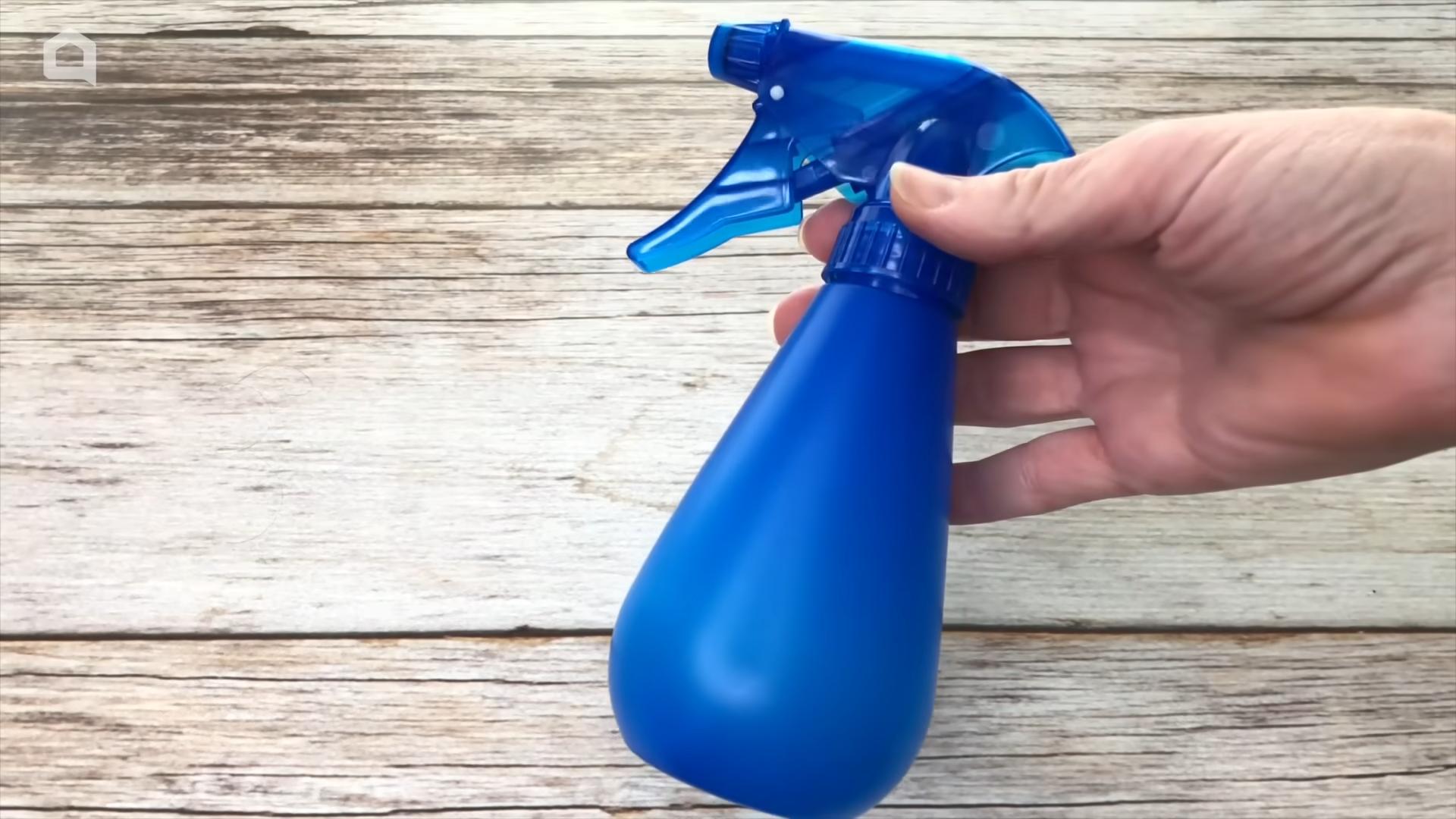
Conclusion
So, there you have it! These aren’t your grandma’s cleaning tips (unless your grandma was secretly a cleaning genius with a penchant for the unconventional). We’ve explored some truly bizarre cleaning tips that, against all odds, actually deliver remarkable results. From the surprising power of denture tablets to the unexpected versatility of mayonnaise, these methods offer a fresh perspective on tackling everyday messes.
But why should you ditch your usual cleaning routine and embrace these oddball approaches? The answer is simple: they’re effective, often more affordable than commercial cleaners, and can save you from throwing away items you thought were beyond repair. Plus, let’s be honest, there’s a certain satisfaction in knowing you’ve outsmarted a stubborn stain with a cleaning hack that sounds utterly ridiculous on paper.
Consider the possibilities! Imagine restoring your dingy grout to its former glory with a simple baking soda paste, or reviving your scratched wooden furniture with a dab of mayonnaise. Think of the money you’ll save by using vinegar to descale your coffee maker instead of buying expensive descaling solutions. These aren’t just cleaning tips; they’re little acts of rebellion against the tyranny of grime and the endless cycle of buying more and more cleaning products.
And the best part? Many of these bizarre cleaning tips are incredibly versatile. For example, the denture tablet trick isn’t just for cleaning toilets; you can also use it to remove stains from coffee mugs, vases, and even thermoses. Similarly, the vinegar solution that works wonders on your coffee maker can also be used to clean showerheads, remove hard water stains from faucets, and even freshen up your dishwasher.
Don’t be afraid to experiment and adapt these tips to your specific needs. Maybe you’ll discover that lemon juice works even better than vinegar for removing hard water stains in your area. Or perhaps you’ll find that a combination of baking soda and hydrogen peroxide is the ultimate weapon against stubborn mildew. The key is to be open to trying new things and to observe the results carefully.
We’ve only scratched the surface of the world of bizarre cleaning tips. There are countless other unconventional methods out there waiting to be discovered. So, we encourage you to dive in, do your research, and find the hacks that work best for you.
Ready to transform your cleaning routine? We urge you to try at least one of these bizarre cleaning tips this week. You might be surprised at how well they work. And more importantly, we want to hear about your experiences! Share your successes (and your failures) in the comments below. Let’s create a community of cleaning enthusiasts who aren’t afraid to think outside the box and embrace the weird and wonderful world of unconventional cleaning. After all, a clean home is a happy home, and sometimes, the most unexpected solutions are the most effective. Embrace the power of bizarre cleaning tips and see the difference for yourself!
Frequently Asked Questions (FAQ)
What makes these cleaning tips “bizarre”?
The term “bizarre” is used because these cleaning methods often involve using everyday household items in ways that are not traditionally associated with cleaning. For example, using denture tablets to clean a toilet or mayonnaise to polish wood furniture might seem strange at first glance, but these methods have proven to be surprisingly effective.
Are these bizarre cleaning tips safe to use?
In most cases, yes, these tips are safe to use. However, it’s always important to exercise caution and common sense. Before trying any new cleaning method, test it on a small, inconspicuous area first to ensure that it doesn’t damage the surface. Also, be sure to wear gloves and eye protection when working with cleaning solutions, especially if you have sensitive skin or allergies. And never mix different cleaning products together, as this can create dangerous fumes.
Will these bizarre cleaning tips damage my belongings?
While these tips are generally safe, there is always a risk of damage, especially if you’re working with delicate or valuable items. That’s why it’s so important to test any new cleaning method on a small, inconspicuous area first. If you’re unsure about whether a particular tip is safe for a specific item, it’s always best to err on the side of caution and consult a professional cleaner.
How do I know which bizarre cleaning tip to use for a specific problem?
The best way to determine which tip to use is to do some research and read reviews from other people who have tried the method. You can also consult online cleaning guides or ask for advice from cleaning experts. When choosing a tip, consider the type of surface you’re cleaning, the severity of the stain or mess, and any potential risks involved.
Can I use these bizarre cleaning tips on all types of surfaces?
No, not all of these tips are suitable for all types of surfaces. For example, using vinegar on marble or granite can damage the stone. Similarly, using abrasive cleaners on delicate surfaces like wood or glass can cause scratches. Always check the manufacturer’s instructions for your belongings before using any cleaning product, and test any new cleaning method on a small, inconspicuous area first.
Are these bizarre cleaning tips environmentally friendly?
Many of these tips are more environmentally friendly than using commercial cleaning products, which often contain harsh chemicals that can pollute the air and water. For example, using vinegar, baking soda, or lemon juice to clean your home is a much more sustainable option than using bleach or other toxic chemicals. However, it’s important to dispose of cleaning solutions properly to avoid contaminating the environment.
What if a bizarre cleaning tip doesn’t work for me?
If a particular tip doesn’t work for you, don’t give up! Try adjusting the method or using a different cleaning product. Sometimes, it takes a little experimentation to find the right solution for a specific problem. You can also consult online cleaning forums or ask for advice from cleaning experts. And if all else fails, you can always hire a professional cleaner to tackle the job.
Where can I find more bizarre cleaning tips?
There are many resources available online and in print that offer a wealth of bizarre cleaning tips. You can search online cleaning guides, read cleaning blogs, or consult cleaning experts. You can also find inspiration from other cleaning enthusiasts on social media. The key is to be open to trying new things and to share your own discoveries with others.
Can I combine these bizarre cleaning tips with commercial cleaning products?
It’s generally not recommended to combine these tips with commercial cleaning products, as this can create dangerous fumes or cause unexpected chemical reactions. Always use cleaning products as directed by the manufacturer, and never mix different cleaning products together. If you’re unsure about whether it’s safe to combine a particular tip with a commercial cleaning product, it’s always best to err on the side of caution and avoid doing so.
How often should I use these bizarre cleaning tips?
The frequency with which you use these tips will depend on your individual cleaning needs and preferences. Some tips, like using vinegar to descale your coffee maker, can be done on a regular basis to prevent buildup. Other tips, like using mayonnaise to polish wood furniture, may only be needed occasionally to address specific problems. The key is to listen to your home and adjust your cleaning routine accordingly.
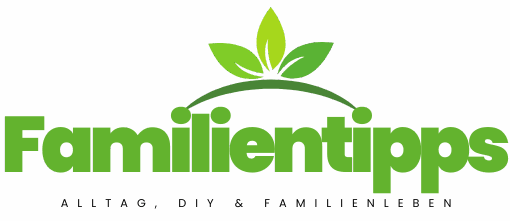

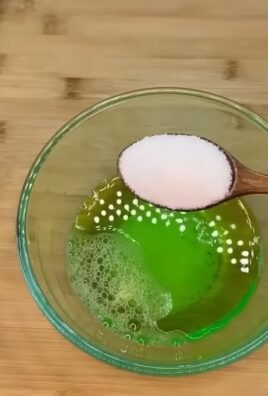
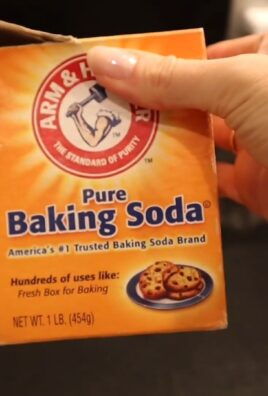
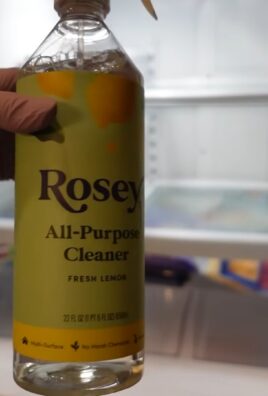
Leave a Comment